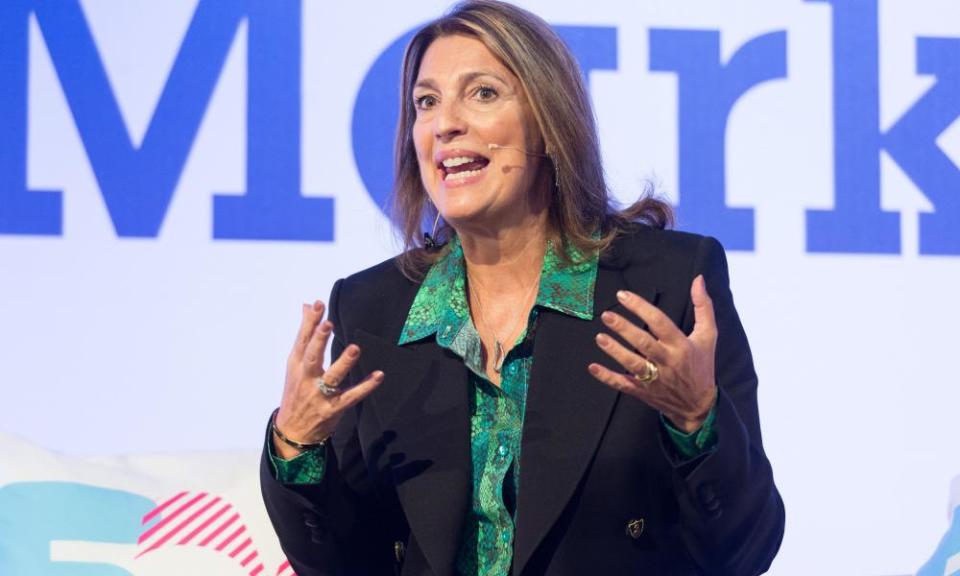ITV chief: now is last chance to build British challenger to Netflix

The chief executive of ITV has said now is the last chance for UK broadcasters to build a British Netflix, as the US streaming giant continues to grow at breakneck speed.
The warning from Carolyn McCall, chief executive of the UK’s largest free-to-air commercial broadcaster, follows protracted talks between the BBC, Channel 4 and ITV to create a credible domestic streaming rival to Netflix that have failed to bear fruit.
McCall, who took over at ITV in January, has made developing a subscription video-on-demand service a priority – to sit alongside existing free service ITV Hub and a paid-for, ad-free version that allows access in Europe which has proved popular with holidaymakers – with a launch planned for next year.
She says UK broadcasters have little time left to act, in concert or by developing their own services, or they will find it impossible to turn the tide against the invasion of the US-based global streaming superpowers Netflix and Amazon.
“I think the window is closing,” McCall told the Guardian. Asked if ITV and its domestic rivals were effectively in the last chance saloon to develop British-focused competitor to Netflix, she said: “Of course, which is why I think ITV feel we just want to get on. We know it’s not going to be easy. We know it’s not slam dunk. If we don’t do it we will never do it. We have to take the plunge.”
McCall’s comments follow Netflix’s better-than-expected results last week, with a third-quarter record of new subscribers signing up, some 7 million, to take its global total to more than 137 million.
As Netflix’s core market gets closer to saturation, it is international markets that are driving growth with UK viewers flocking to the service making it one of the most important markets for the US giant. Netflix has almost 10 million UK subscribers, Sky has 9.6 million pay-TV subs and Amazon’s Prime Video service has about 7.3 million.
McCall said that to provide the best depth and breadth of content for an ITV subscription video-on-demand service, “must have” content previously licensed to services such as Netflix would be kept in-house. There will be no more deals such as licensing Love Island, the ITV2 reality TV show, to Netflix.
“When we have commissioned content and it is run on ITV it is less likely we will [then] sell it to Netflix [for on-demand viewing],” she said. “Love Island is a good example. Love Island series one and two went on Netflix this summer before Love Island four started on ITV2. It is likely that we will need that for ITV’s [new] service. As those sorts of deals end we have to think about what we need to do with our content. Would we do that deal again when we are building our own service, it is unlikely we would sell those rights.”
McCall said the best chance of creating a viable rival to Netflix is for the UK’s public service broadcasters (PSBs) to join forces. However, she conceded that a joint venture between three such different businesses – the publicly-listed ITV, state-owned commercially funded Channel 4, and the BBC – is proving tricky.
“We would like to collaborate with the PSBs because it just makes sense,” she said. “But we all have different ownership structures and we all have slightly different objectives. I would like to see partnerships in this and there is a lot of work going on to try and get that.”
ITV has a joint venture streaming service with the BBC, called BritBox. However, it is available only in the US. More than a decade ago the BBC, Channel 4 and ITV came together to build the video-on-demand service Kangaroo, which was due to launch in 2007, but it became tangled in red tape and was ultimately blocked by the competition regulator two years later.

 Yahoo Finance
Yahoo Finance 